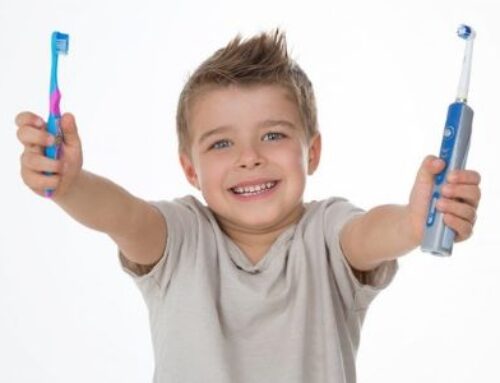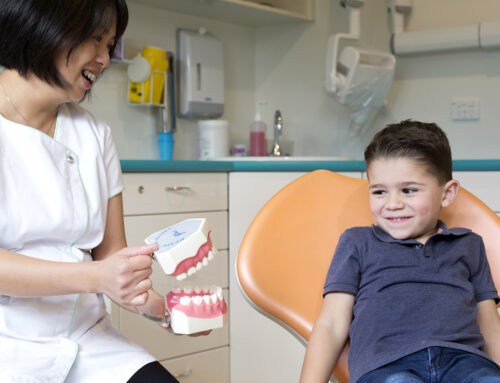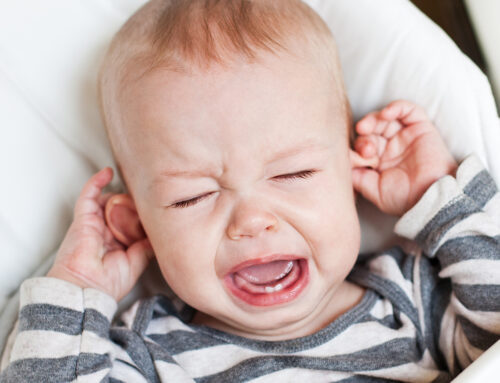Is the taste of ice cream or a sip of a hot drink sometimes a painful experience for your child? Does tooth brushing or flossing make them wince occasionally? If so, your child may have sensitive teeth. Tooth sensitivity occurs when the layer of a tooth underneath the enamel (called the dentin) or the layer covering the root (called cementum) is exposed along the gum line due to receding gums. The exposed areas respond to hot and cold, and sometimes to sweet and spicy foods, and trigger pain.
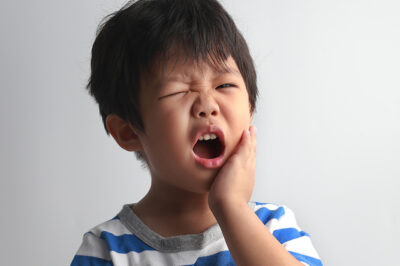
How can I manage my child’s tooth sensitivity?
Tooth sensitivity is not something your child should have to deal with, and in some instances can be painful. The best way to prevent tooth sensitivity is to firstly ensure your child has a good oral hygiene routine at home. This includes a fluoridated toothpaste and a soft-bristled toothbrush. A soft toothbrush will help prevent gum loss and will also avoid enamel wear. It is also best to avoid acidic and sweet drinks as this can also damage the outer layers of teeth.
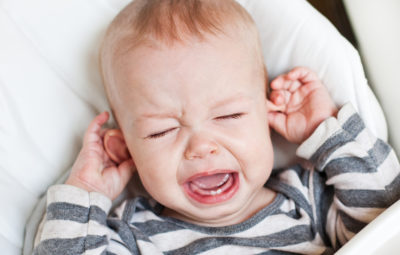


OUR TOP TIPS TO MANAGE TEETH SENSITIVITY!
1. Use toothpaste specifically made for sensitive teeth – It is important to ask a dentist before allowing a child under age 12 to use a desensitising product. You can try unflavored toothpaste or use a clean washcloth or piece of gauze to gently wipe your child’s sensitive teeth. Teens can try toothpaste such as Colgate Sensitive. Sensodyne ProNamel for Children is indicated for ages six and up, but ask a dentist before switching.
2. Use a mouthwash with fluoride – If cavities are causing your child’s tooth sensitivity, try a fluoride mouthwash as long as it is appropriate for your child’s age. You may also be able to purchase fluoride gel to use at home, but it will need to come from a dentist.
3. Make sure the toothbrush is soft – Children should not use medium or hard toothbrushes. Soft is effective for cleaning. Also, extra soft is preferred for younger children. Gentle care is best if your child has sensitive teeth.
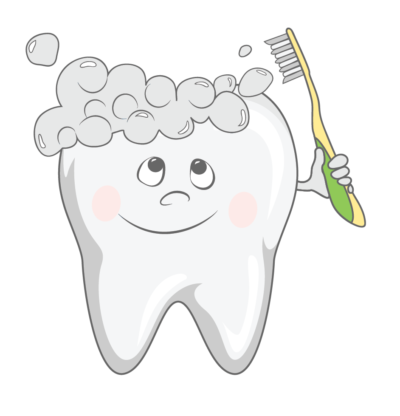
OUR FREQUENTLY ASKED QUESTIONS!
USEFUL DENTAL RESOURCES AND FURTHER READING
Head to the Colgate website for further reading about tooth sensitivity in children
https://www.colgate.com/en-us/oral-health/conditions/tooth-sensitivity/what-to-use-for-sensitive-teeth-in-children-1114
Some more great information about tooth sensitivity and what to do to help your child
https://www.mouthhealthy.org/en/az-topics/s/sensitive-teeth
Thanks to our wonderful Oral Health Therapist, Kay
She works at the Werribee clinic.
If you would like to talk to her or any of our amazing team, about this or any other questions you may have, please contact us on 03 9372 8960.

